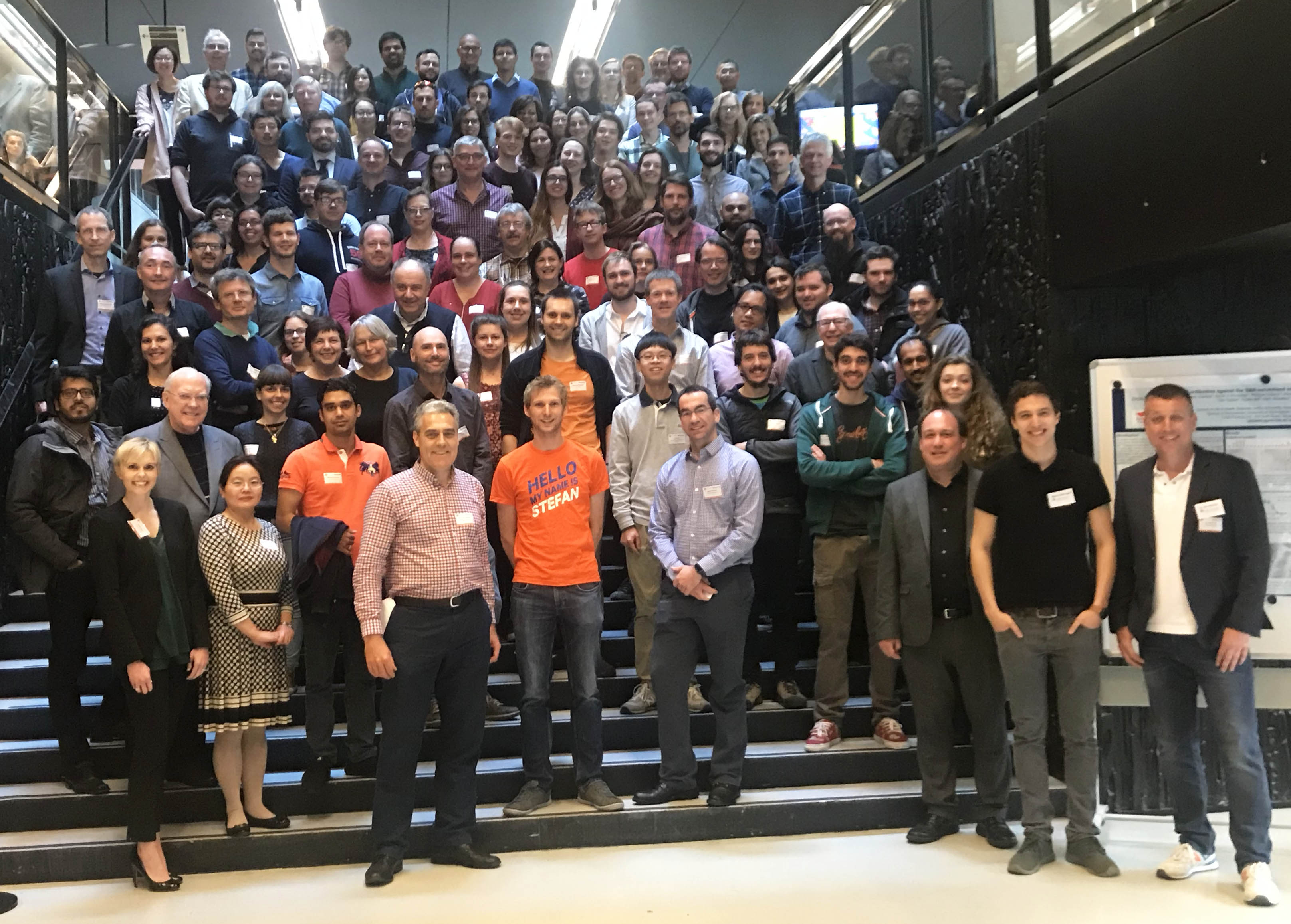SMALP Conference Registration
Our conferences bring together researchers interested in membrane structure and function from various disciplines, including biochemistry, biophysics, spectroscopy, chemical biology, polymer chemistry, advanced imaging, and cell biology.
The development of innovative extraction methods, such as copolymers like SMA, membrane protein scaffolds, saposins, peptidiscs, and native vesicle extractionhas driven progress in this field.
Amphipathic polymers fragment membranes into water-soluble discs, allowing the complex structures and interactions found in vivo to be discerned, without requiring synthetic detergents or artificial lipids. This is yielding new insights, tools and models of how membranes operate and can be manipulated.
Join us to find out about the latest structures of native membrane proteins, how to capture memteins with polymers, and new tools and applications of nanodiscs.
Register: Membrane Protein Paris 2024 on Oct. 14
Speakers include:
 Amedee des Georges, Associate Professor, Molecular Pathobiology, NYU: deciphering the gating mechanism of RyR1 using temperature-resolved cryo-EM
Amedee des Georges, Associate Professor, Molecular Pathobiology, NYU: deciphering the gating mechanism of RyR1 using temperature-resolved cryo-EM
 Bjorn Pedersen, Professor, Dept. of Molecular Biology & Genetics, Aarhus University, Denmark, with a focus on transmembrane transporters
Bjorn Pedersen, Professor, Dept. of Molecular Biology & Genetics, Aarhus University, Denmark, with a focus on transmembrane transporters
 Cathy Etschebest, Professor, DSIMB, INSERM, Paris-Diderot: New insights in the dynamics and functional mechanisms of Potassium Channels brought by molecular dynamics simulations
Cathy Etschebest, Professor, DSIMB, INSERM, Paris-Diderot: New insights in the dynamics and functional mechanisms of Potassium Channels brought by molecular dynamics simulations
 Chiara Rapisarda, Group Leader in cryo-EM at Sanofi: developing new capabilities to accelerate drug discovery
Chiara Rapisarda, Group Leader in cryo-EM at Sanofi: developing new capabilities to accelerate drug discovery
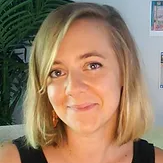 Claire de March, Assistant Professor, CNRS, Institute of Chemistry of the Natural Substances, University Paris Saclay, studying olfactory receptors
Claire de March, Assistant Professor, CNRS, Institute of Chemistry of the Natural Substances, University Paris Saclay, studying olfactory receptors
 Daniel Capelluto, Associate Professor, Virginia Tech: Mechanisms of regulation of endosomal cargo transporters
Daniel Capelluto, Associate Professor, Virginia Tech: Mechanisms of regulation of endosomal cargo transporters
 Isabelle Mus-Veteau, CNRS Research Director, Institut de Pharmacologie Moléculaire and Cellulaire: Drug efflux activity of the Hedgehog receptor Patched
Isabelle Mus-Veteau, CNRS Research Director, Institut de Pharmacologie Moléculaire and Cellulaire: Drug efflux activity of the Hedgehog receptor Patched
 Leonid Sazanov, Professor, Institute of Science and Technology Austria: Structures and coupling mechanism of respiratory complex I, a huge molecular machine
Leonid Sazanov, Professor, Institute of Science and Technology Austria: Structures and coupling mechanism of respiratory complex I, a huge molecular machine
 Manuela Zoonens, Senior Researcher, CNRS, Paris & Institut de Biologie Physico-Chimique, Université Paris Cité, with a focus on amphipols
Manuela Zoonens, Senior Researcher, CNRS, Paris & Institut de Biologie Physico-Chimique, Université Paris Cité, with a focus on amphipols
 Rebecca Murray, PhD Student, Coventry University and Stellenbosch University: Development of a Novel BRET-Based Assay Assessing the Function of GPCRs Solubilised with SMA and SMA-like Polymers
Rebecca Murray, PhD Student, Coventry University and Stellenbosch University: Development of a Novel BRET-Based Assay Assessing the Function of GPCRs Solubilised with SMA and SMA-like Polymers
Membrane Protein Paris 2024 is being co-organized with APPICOM and ISC-PIF , and brings together scientists from disciplines including biochemistry, biophysics, polymer chemistry, and chemical, molecular and cell biology in order to explore the latest developments related to biological membranes.
We'll explore structures and interactions of memteins as well as methods for extracting and stabilizing membrane complexes such as SMA and related copolymers, scaffolds, saposins, peptidiscs, and native vesicles has driven progress in this growing field.
The advances rely on novel agents that fragment membranes into water-soluble nanodiscs, allowing the complex native structures and interactions found in vivo to be discerned without the scrambling and destabilization caused by conventional detergents.
New tools and models for discerning how membrane zones form and operate across cellular and evolutionary spaces provides insights into structures and functions of organelle and organ systems, as well as guiding biomarker and drug discovery.
The Membrane Protein Paris 2024 conference will be at TOTEM, ISC-PIF.
Co-organizers:
- David Strobel, Institut de Biologie, Ecole Normale Supérieure de Paris
- Ewen Lescop, CNRS Research Director, ICSN, Université Paris-Saclay
- Guillaume Lenoir, Assistant Professor & LPSM Group Leader, University Paris-Sud
- Isabelle Mus-Veteau, CNRS Research Director, IMPC, Sophia Antipolis, France
- Martin Picard, CNRS Research Director, BPM lab at IBPC, Paris
- Michael Overduin, Director, SMALP Network
- Vincent Chaptal, Molecular Microbiology & Structural Biochemistry, APPICOM Director
SMALP Conference on June 18, 2024: Videos
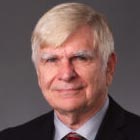 Garth Nicolson, President, The Institute for Molecular Medicine on the updated Singer-Nicolson Fluid-Mosaic Model of Cell Membranes
Garth Nicolson, President, The Institute for Molecular Medicine on the updated Singer-Nicolson Fluid-Mosaic Model of Cell Membranes
 Adam Evans, PhD student with Tim Dafforn at U Birmingham, on Optimising the Purification Process: Exploring Affinity Resins and Polymer Combinations using the RePol Screen.
Adam Evans, PhD student with Tim Dafforn at U Birmingham, on Optimising the Purification Process: Exploring Affinity Resins and Polymer Combinations using the RePol Screen.

 Alex Snow, Postdoctoral Researcher, and Tharushi Wijesiriwardena, Research Technician with Stephen Muench University of Leeds Astbury Biostructure Laboratory on Incorporating SMALPs into a novel cell-free system
Alex Snow, Postdoctoral Researcher, and Tharushi Wijesiriwardena, Research Technician with Stephen Muench University of Leeds Astbury Biostructure Laboratory on Incorporating SMALPs into a novel cell-free system
 Claire Coupland, Postdoctoral Researcher with John Rubinstein, The Hospital for Sick Children, on cryo-EM of V-ATPase in native synaptic vesicles
Claire Coupland, Postdoctoral Researcher with John Rubinstein, The Hospital for Sick Children, on cryo-EM of V-ATPase in native synaptic vesicles
 Wan Zheng, Postdoctoral Associate with Kai (Jack) Zhang, Yale U: In-situ Structures of Mammalian Mitochondrial Respiratory Supercomplexes in Reaction within Native Mitochondria
Wan Zheng, Postdoctoral Associate with Kai (Jack) Zhang, Yale U: In-situ Structures of Mammalian Mitochondrial Respiratory Supercomplexes in Reaction within Native Mitochondria
 Troy Kervin, PhD Student with Peijun Zhang at U Oxford published how membranes are functionalized by the proteolipid code and will present "Open questions about membrane zonation"
Troy Kervin, PhD Student with Peijun Zhang at U Oxford published how membranes are functionalized by the proteolipid code and will present "Open questions about membrane zonation"
 Noemi Jiménez-Rojo, Ikerbasque Research Fellow, Dept of Biochemistry, UPV/EHU, who published on cracking the membrane lipid code
Noemi Jiménez-Rojo, Ikerbasque Research Fellow, Dept of Biochemistry, UPV/EHU, who published on cracking the membrane lipid code
 Satyajit Mayor, Professor, National Centre for Biological Sciences, Bangalore, India on membrane organization, models and nanoclusters
Satyajit Mayor, Professor, National Centre for Biological Sciences, Bangalore, India on membrane organization, models and nanoclusters
 Peter Tieleman, Professor, University of Calgary and Canada Research Chair in Molecular Simulation, on membrane modeling and fingerprinting
Peter Tieleman, Professor, University of Calgary and Canada Research Chair in Molecular Simulation, on membrane modeling and fingerprinting
Speakers and Videos from March 12, 2024:
 Ci Chu, PhD student, Heinrich-Heine-U, on capturing GPCRs into native lipid-bilayer nanodiscs using DIBMA copolymers.
Ci Chu, PhD student, Heinrich-Heine-U, on capturing GPCRs into native lipid-bilayer nanodiscs using DIBMA copolymers.
 Michael Erkelenz, Cube Biotech will speak on A new multimodal memtein copolymer platform.
Michael Erkelenz, Cube Biotech will speak on A new multimodal memtein copolymer platform.
 Jelger Risselada, Dept of Physics, TU Dortmund U, on Membrane facial recognition: How proteins actually see cholesterol.
Jelger Risselada, Dept of Physics, TU Dortmund U, on Membrane facial recognition: How proteins actually see cholesterol.
 Marzieh Tabefam, Ph. D. student, WLU, on Exploring the Interconnection of Mitochondrial Carrier Proteins Involved in Energy Transfer.
Marzieh Tabefam, Ph. D. student, WLU, on Exploring the Interconnection of Mitochondrial Carrier Proteins Involved in Energy Transfer.
 Ayyalusamy Ramamoorthy, Professor, FSU, on detergent-free membrane protein isolation using nanodisc-forming polymers.
Ayyalusamy Ramamoorthy, Professor, FSU, on detergent-free membrane protein isolation using nanodisc-forming polymers.
 Elissa Moller, PhD student, NICHD, on using cryo-EM and polymers to resolve structures of mechanosensitive channels.
Elissa Moller, PhD student, NICHD, on using cryo-EM and polymers to resolve structures of mechanosensitive channels.
 Peter Kim, Ph.D. Student, U Toronto, on structures of channel rhodopsin paralogs in peptidiscs and their ion selectivities.
Peter Kim, Ph.D. Student, U Toronto, on structures of channel rhodopsin paralogs in peptidiscs and their ion selectivities.
 Wayland Cheng, Associate Professor, Washington U, on nanodisc scaffold and size altering ligand-gated ion channel structures.
Wayland Cheng, Associate Professor, Washington U, on nanodisc scaffold and size altering ligand-gated ion channel structures.
Brian Adair, Instructor, Harvard Medical School, on cryo-EM structures of human integrins in native lipids.
SMALP Conference Program for Oct 20-21, 2023
Keynote Lectures
![]() Alice Rothnie, Senior Lecturer, Aston U: My SMALP journey.
Alice Rothnie, Senior Lecturer, Aston U: My SMALP journey.
How it started....how it's going.
 Chuck Sanders, Professor, Vanderbilt U: How Amphipol Polymers and their Applications in Membrane Research Differ from SMALP Polymers
Chuck Sanders, Professor, Vanderbilt U: How Amphipol Polymers and their Applications in Membrane Research Differ from SMALP Polymers
 Sandro Keller, Professor, U Graz: New Native Nanodiscs
Sandro Keller, Professor, U Graz: New Native Nanodiscs
for Membrane-Protein Biophysics
 Steven Sligar, Professor, U Illinois Urbana-Champaign: Investigating cancer signaling and vaccine development with MSP-based nanodiscs
Steven Sligar, Professor, U Illinois Urbana-Champaign: Investigating cancer signaling and vaccine development with MSP-based nanodiscs
Invited Speakers
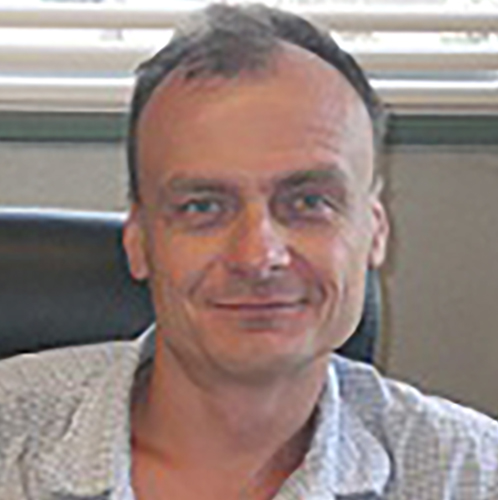 Alexander Nevzorov, Professor, North Carolina State U: Magnetically aligned peptoid-stabilized lipid macrodiscs for structural studies of membrane proteins by solid-state NMR
Alexander Nevzorov, Professor, North Carolina State U: Magnetically aligned peptoid-stabilized lipid macrodiscs for structural studies of membrane proteins by solid-state NMR
 Bert Klumpermann, Professor, Stellenbosch University: RAFT-mediated polymerization to enhance functionality in the SMALP technology
Bert Klumpermann, Professor, Stellenbosch University: RAFT-mediated polymerization to enhance functionality in the SMALP technology
 Doreen Matthies, Head, Unit on Structural Biology, NIH: Cryo-EM structures of E. coli mechanosensitive channel MscS and bovine mitochondrial complex III in styrene maleic acid nanodiscs
Doreen Matthies, Head, Unit on Structural Biology, NIH: Cryo-EM structures of E. coli mechanosensitive channel MscS and bovine mitochondrial complex III in styrene maleic acid nanodiscs
 Henry Liang, Associate Professor, Texas Tech: From Detergent to Membrane-Scaffold Polymers: A Look into the Structural Heterogeneity of SMALPs Through the Lens of SMA Detergency
Henry Liang, Associate Professor, Texas Tech: From Detergent to Membrane-Scaffold Polymers: A Look into the Structural Heterogeneity of SMALPs Through the Lens of SMA Detergency
 Huan Bao, Assistant Professor, Scripps Institute Florida; Circularized nanodiscs to characterize membrane perforation
Huan Bao, Assistant Professor, Scripps Institute Florida; Circularized nanodiscs to characterize membrane perforation
 Kallol Gupta, Assistant Professor, Yale: Deciphering molecular organization of membrane proteins in their native membrane
Kallol Gupta, Assistant Professor, Yale: Deciphering molecular organization of membrane proteins in their native membrane
 Jan Kubicek, Scientist and MD, Cube Biotech: Beyond Boundaries: The Crucial Role of Method Spectrum in Membrane Protein Studies
Jan Kubicek, Scientist and MD, Cube Biotech: Beyond Boundaries: The Crucial Role of Method Spectrum in Membrane Protein Studies
 Michael Marty, Associate Professor, U Arizona: Identifying Membrane Protein-Lipid Interactions with Lipidomic Lipid Exchange-Mass Spectrometry
Michael Marty, Associate Professor, U Arizona: Identifying Membrane Protein-Lipid Interactions with Lipidomic Lipid Exchange-Mass Spectrometry
 Michael Overduin, Professor, U Alberta: Functionalization of Membranes by the Proteolipid Code
Michael Overduin, Professor, U Alberta: Functionalization of Membranes by the Proteolipid Code
 Moitrayee Bhattacharyya, Assistant Professor, Yale U: Determination of oligomeric organization of membrane proteins from native membranes at nanoscale-spatial and single-molecule resolution
Moitrayee Bhattacharyya, Assistant Professor, Yale U: Determination of oligomeric organization of membrane proteins from native membranes at nanoscale-spatial and single-molecule resolution
 Paula Booth, Daniell Professor of Chemistry, King’s College, London: Co-translational membrane protein folding in native lipid environments
Paula Booth, Daniell Professor of Chemistry, King’s College, London: Co-translational membrane protein folding in native lipid environments
 Thirupathi Ravula, Scientist II, National Magnetic Resonance Facility at Madison, Department of Biochemistry, University of Wisconsin-Madison.
Thirupathi Ravula, Scientist II, National Magnetic Resonance Facility at Madison, Department of Biochemistry, University of Wisconsin-Madison.
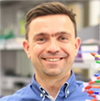 Thorsten Schmidt, Assistant Professor, Kent State U: DNA-based lipid bilayer mimetics
Thorsten Schmidt, Assistant Professor, Kent State U: DNA-based lipid bilayer mimetics
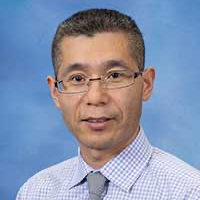 Youzhong Guo, Assistant Professor, VA Commonwealth U: Cryo-EM structures of a mechanosensitive channel, E.coli MscS, in the native cell membrane nanoparticles
Youzhong Guo, Assistant Professor, VA Commonwealth U: Cryo-EM structures of a mechanosensitive channel, E.coli MscS, in the native cell membrane nanoparticles
Selected speakers
 Brian Long, University of Tennessee, Knoxville: Alternatives to SMA and DIBMA copolymers for membrane protein solubilization via nanodisc formation.
Brian Long, University of Tennessee, Knoxville: Alternatives to SMA and DIBMA copolymers for membrane protein solubilization via nanodisc formation.
 Caroline Brown, Yale University: Capturing membrane snapshots: A quantitative proteome-wide guide for high-throughput spatially-resolved extraction of membrane proteins for structural/functional studies on native membranes
Caroline Brown, Yale University: Capturing membrane snapshots: A quantitative proteome-wide guide for high-throughput spatially-resolved extraction of membrane proteins for structural/functional studies on native membranes
 Evelyn Okorafor, Miami University, Oxford: The effect of lipid saturation on the structure of styrene maleic acid lipid nanoparticles (SMALP)
Evelyn Okorafor, Miami University, Oxford: The effect of lipid saturation on the structure of styrene maleic acid lipid nanoparticles (SMALP)
 Lars Deutz, U Texas Austin: Membrane extraction in native lipid nanodiscs reveals dy-namic regulation of Cdc42 complexes during cell polarization
Lars Deutz, U Texas Austin: Membrane extraction in native lipid nanodiscs reveals dy-namic regulation of Cdc42 complexes during cell polarization
 Lauren Ball, Stellenbosch U: Universal-RAFT mediated synthesis of double hydrophilic SMA-b-PVP copolymers for surface immobilization of SMALPs
Lauren Ball, Stellenbosch U: Universal-RAFT mediated synthesis of double hydrophilic SMA-b-PVP copolymers for surface immobilization of SMALPs
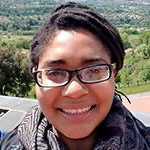 Lynnicia Massenburg, Pennsylvania State U: Structural organization of the Physcomitrium patens cellu-lose synthase 5 (PpCesA5) homotrimeric assembly
Lynnicia Massenburg, Pennsylvania State U: Structural organization of the Physcomitrium patens cellu-lose synthase 5 (PpCesA5) homotrimeric assembly
 Mark Arcario, Washington U: Larger nanodiscs support a more native-like membrane environment across a range of lipid types
Mark Arcario, Washington U: Larger nanodiscs support a more native-like membrane environment across a range of lipid types
 Muhammad Zeeshan Shah, Miami University, Oxford:Vinyl Ether and Maleic Anhydride Copolymerization Forming Lipid Nano Discs to Study Membrane Protein
Muhammad Zeeshan Shah, Miami University, Oxford:Vinyl Ether and Maleic Anhydride Copolymerization Forming Lipid Nano Discs to Study Membrane Protein
 Nancy Rotich, Miami University, Oxford, OH: A Comparison of the Effect of SMA Derivatives on the Structural Topology and Dynamics of two Bacteriophage Peptides
Nancy Rotich, Miami University, Oxford, OH: A Comparison of the Effect of SMA Derivatives on the Structural Topology and Dynamics of two Bacteriophage Peptides
 Nathan Brady, University of Tennessee, Knoxville: Small angle neutron scattering and lipidomic analysis of a native, trimeric PSI-SMALP from a thermophilic cyanobacteria
Nathan Brady, University of Tennessee, Knoxville: Small angle neutron scattering and lipidomic analysis of a native, trimeric PSI-SMALP from a thermophilic cyanobacteria
 Olivia Fiebig, Penn State U: Exploring inter-protein energy transfer in the photosynthetic antenna network of purple bacteria with nanodiscs
Olivia Fiebig, Penn State U: Exploring inter-protein energy transfer in the photosynthetic antenna network of purple bacteria with nanodiscs
 Olivia Hawkins, Aston University, UK: Investigation into the basis of protein-lipid interactions for ATP-Binding Cassette (ABC) transporters, using novel polymer-based solubilisation methods.
Olivia Hawkins, Aston University, UK: Investigation into the basis of protein-lipid interactions for ATP-Binding Cassette (ABC) transporters, using novel polymer-based solubilisation methods.
 Ryan Schuck, University of Tennessee, Knoxville: Cholesterol inhibits oncogenic EphA2 assembly & activation
Ryan Schuck, University of Tennessee, Knoxville: Cholesterol inhibits oncogenic EphA2 assembly & activation
 Shakiba Nikfarjam, LLNL: Enhancing Solubilization and Stability of Membrane Proteins for High-Throughput Antibody Screening Using Polymer Nanodiscs
Shakiba Nikfarjam, LLNL: Enhancing Solubilization and Stability of Membrane Proteins for High-Throughput Antibody Screening Using Polymer Nanodiscs
 Shushu Wei, University of Tennessee Knoxville: Single-Molecule Visualization of Human A2A Adenosine Receptor Activation by a G Protein and Constitutively Activating Mutations
Shushu Wei, University of Tennessee Knoxville: Single-Molecule Visualization of Human A2A Adenosine Receptor Activation by a G Protein and Constitutively Activating Mutations
 Simon Umbach, Goethe-University of Frankfurt: Synergies of nanoparticles and cell-free expression for the cryo-EM analysis of GPCRs and their nanotransfer into living cells
Simon Umbach, Goethe-University of Frankfurt: Synergies of nanoparticles and cell-free expression for the cryo-EM analysis of GPCRs and their nanotransfer into living cells
 Snehasish Ghosh, Yale University: Membrane-active-polymers (MAPs): A platform to preserve membrane proteins in their local interactome
Snehasish Ghosh, Yale University: Membrane-active-polymers (MAPs): A platform to preserve membrane proteins in their local interactome
 Soumya Chandrasekhar, Kent State U: Polyethylene glycol-modified DNA-based nanodiscs for in-corporation and characterization of membrane proteins
Soumya Chandrasekhar, Kent State U: Polyethylene glycol-modified DNA-based nanodiscs for in-corporation and characterization of membrane proteins
SMALP Conference Videos for June 15, 2023
Session 1 chaired by Gestél Kuyler, Stellenbosch University & Coventry University
 9:00 am MDT Kunyu Wang, a PhD student with Youdong Mao at State Key Laboratory for Mesoscopic Physics, School of Physics and Peking-Tsinghua Joint Center for Life Science, Peking University, Beijing, will present Using SMALP to discover native conformations of HIV-1 Envelop glycoprotein as appeared in Commun Biol.
9:00 am MDT Kunyu Wang, a PhD student with Youdong Mao at State Key Laboratory for Mesoscopic Physics, School of Physics and Peking-Tsinghua Joint Center for Life Science, Peking University, Beijing, will present Using SMALP to discover native conformations of HIV-1 Envelop glycoprotein as appeared in Commun Biol.
 9:20 am Kirill Nadezhdin Postdoctoral Scientist and previously graduate student at Columbia University Irving Medical Center, who recently published on the structural mechanisms of TRPM7 activation and inhibition in Nature Communications.
9:20 am Kirill Nadezhdin Postdoctoral Scientist and previously graduate student at Columbia University Irving Medical Center, who recently published on the structural mechanisms of TRPM7 activation and inhibition in Nature Communications.
Session 2 chaired by Philipp Hanisch, Cube Biotech
 9:45 am Willem Kegel, Professor Science Chemistry, Debye Institute for Nanomaterials Science Physical and Colloid Chemistry, University of Utrecht, who recently published on cooperative transitions involving hydrophobic polyelectrolytes such as polymers including SMA interacting with membranes in PNAS. Slides
9:45 am Willem Kegel, Professor Science Chemistry, Debye Institute for Nanomaterials Science Physical and Colloid Chemistry, University of Utrecht, who recently published on cooperative transitions involving hydrophobic polyelectrolytes such as polymers including SMA interacting with membranes in PNAS. Slides
 10:05 am Qun Liu, Principle Investigator, Biology Department, Brookhaven National Laboratory, will speak on cryo-EM structure analysis of small membrane proteins in polymer nanodiscs, with examples including two ~50 kDa proteins, the FtAlkBG enzyme and BbZIP zinc transporter.
10:05 am Qun Liu, Principle Investigator, Biology Department, Brookhaven National Laboratory, will speak on cryo-EM structure analysis of small membrane proteins in polymer nanodiscs, with examples including two ~50 kDa proteins, the FtAlkBG enzyme and BbZIP zinc transporter.
Session 3 chaired by David Glück, Universität Graz
 10:30 am David Swainsbury, Lecturer in Biochemistry at University of East Anglia, who recently published on the cryo-EM structure of the four-subunit Rhodobacter sphaeroides cytochrome bc1 complex in styrene maleic acid nanodiscsin PNAS.
10:30 am David Swainsbury, Lecturer in Biochemistry at University of East Anglia, who recently published on the cryo-EM structure of the four-subunit Rhodobacter sphaeroides cytochrome bc1 complex in styrene maleic acid nanodiscsin PNAS.
 10:50 am Piotr Koprowski, Assistant Professor, Laboratory of Intracellular Ion Channels, Nencki Institute of Experimental Biology PAS (Poland) who recently published on pharmacological characterization of mitochondrial ROMK2 potassium channels in lipid bilayers.
10:50 am Piotr Koprowski, Assistant Professor, Laboratory of Intracellular Ion Channels, Nencki Institute of Experimental Biology PAS (Poland) who recently published on pharmacological characterization of mitochondrial ROMK2 potassium channels in lipid bilayers.
Session 4 chaired by Rajan Lamichhane, University of Tennessee Knoxville
 11:15 am Moitrayee Bhattacharyya, Assistant Professor of Pharmacology, Yale University, who recently published on the determination of oligomeric organization of membrane proteins from native membranes at nanoscale-spatial and single-molecule resolution.
11:15 am Moitrayee Bhattacharyya, Assistant Professor of Pharmacology, Yale University, who recently published on the determination of oligomeric organization of membrane proteins from native membranes at nanoscale-spatial and single-molecule resolution.
 11:35 am Luis Real Hernandez, PhD Student, University of Virginia has recently published Lipid packing is disrupted in copolymeric nanodiscs compared with intact membranes in the Biophys J.
11:35 am Luis Real Hernandez, PhD Student, University of Virginia has recently published Lipid packing is disrupted in copolymeric nanodiscs compared with intact membranes in the Biophys J.
Speakers on Thursday March 9, 2023
Session 1 Chair: Gestél Kuyler, PhD Student, Stellenbosch University & Coventry University
 9:00 am Lukas Spantzel, PhD student with Michael Boersch, Jena University will speak on monitoring oligomerization dynamics of individual human neurotensin receptors in living cells and in SMALP nanodiscs, based on studies which are in press in PLOS One.
9:00 am Lukas Spantzel, PhD student with Michael Boersch, Jena University will speak on monitoring oligomerization dynamics of individual human neurotensin receptors in living cells and in SMALP nanodiscs, based on studies which are in press in PLOS One.
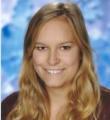 9:20 am Lena Bauernhofer, M.Sc. student with Sandro Keller, Institute of Molecular Biosciences (IMB), University of Graz is using native membrane-protein libraries and microfluidic diffusional sizing and will speak about measuring the cellular copy number and antibody affinity of an oncoprotein in a native lipid-bilayer environment.
9:20 am Lena Bauernhofer, M.Sc. student with Sandro Keller, Institute of Molecular Biosciences (IMB), University of Graz is using native membrane-protein libraries and microfluidic diffusional sizing and will speak about measuring the cellular copy number and antibody affinity of an oncoprotein in a native lipid-bilayer environment.
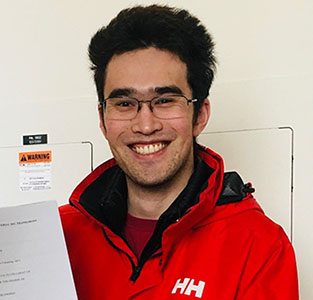 9:40 am John Young, postdoc with Carol Robinson, University of Oxford will speak on Quantifying receptor-ligand interactions using Mass Photometry, and previously studied the outer membrane proteome of bacteria by mass spectrometry using peptidiscs.
9:40 am John Young, postdoc with Carol Robinson, University of Oxford will speak on Quantifying receptor-ligand interactions using Mass Photometry, and previously studied the outer membrane proteome of bacteria by mass spectrometry using peptidiscs.
Session 2 Chair: Valentina Corradi, Research Associate, Biocomputing, University of Calgary
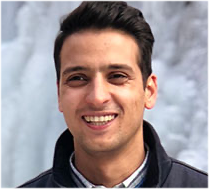 10:05 am Ali Rasouli, PhD student with Emad Tajkhorshid, University of Illinois at Urbana Champaign on Differential dynamics and direct interaction of bound ligands with lipids in multidrug transporters as reported in PNAS USA.
10:05 am Ali Rasouli, PhD student with Emad Tajkhorshid, University of Illinois at Urbana Champaign on Differential dynamics and direct interaction of bound ligands with lipids in multidrug transporters as reported in PNAS USA.
 10:25 am Sudhir Sinha, Emeritus Scientist, Department of Clinical Immunology and Rheumatology, Postgraduate Institute of Medical Sciences, India, will speak on characterisation of SMALPs prepared from Mycobacterium tuberculosis plasma membrane in pursuit of a nanoparticle-based vaccine against tuberculosis.
10:25 am Sudhir Sinha, Emeritus Scientist, Department of Clinical Immunology and Rheumatology, Postgraduate Institute of Medical Sciences, India, will speak on characterisation of SMALPs prepared from Mycobacterium tuberculosis plasma membrane in pursuit of a nanoparticle-based vaccine against tuberculosis.
 10:45 am Ronnie Fang, Assistant Professor of Pediatrics at UC San Diego, and led the cellular nanodisc research effort that was recently published in ACS Nano on Cellular Nanodiscs Made from Bacterial Outer Membrane as a Platform for Antibacterial Vaccination.
10:45 am Ronnie Fang, Assistant Professor of Pediatrics at UC San Diego, and led the cellular nanodisc research effort that was recently published in ACS Nano on Cellular Nanodiscs Made from Bacterial Outer Membrane as a Platform for Antibacterial Vaccination.
Session 3 Chair: Rakesh Bhat, Research Scientist, Department of Biochemistry, University of Alberta
 11:10 am Rhythm Shukla, PhD student with Markus Weingarth at the Department of NMR Spectroscopy and Membrane Biophysics, University of Utrecht, and recently published Teixobactin kills bacteria by a two-pronged attack on the cell envelope in Nature.
11:10 am Rhythm Shukla, PhD student with Markus Weingarth at the Department of NMR Spectroscopy and Membrane Biophysics, University of Utrecht, and recently published Teixobactin kills bacteria by a two-pronged attack on the cell envelope in Nature.
 11:30 am Michael Overduin, Professor, Dept of Biochemistry, University of Alberta on using COMPOSEL to classify proteins such as transmembrane membrane readers and membrane-binding by SARS-CoV-2 variant spike proteins.
11:30 am Michael Overduin, Professor, Dept of Biochemistry, University of Alberta on using COMPOSEL to classify proteins such as transmembrane membrane readers and membrane-binding by SARS-CoV-2 variant spike proteins.
International SMALP Conference on Dec 8, 2022:
Session 1 chaired by Sandro Keller, Karl-Franzens-Universität Graz
 9:00 Alba Torrents de la Peña, postdoctoral fellow with Andrew Ward at The Scripps Research Institute, previously a PhD student at the AMC - Academic Medical Centerrecently published the structure of the hepatitis C virus E1E2 glycoprotein complex in Science.
9:00 Alba Torrents de la Peña, postdoctoral fellow with Andrew Ward at The Scripps Research Institute, previously a PhD student at the AMC - Academic Medical Centerrecently published the structure of the hepatitis C virus E1E2 glycoprotein complex in Science.
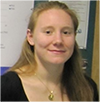 9:20 Maria Falzone, Postdoctoral Researcher, The Rockefeller University with Alessio Accardi, previously at Weill Cornell Graduate School of Medical Sciences and (PhD) and Drew University (BSc); recently published TMEM16 scramblases thin the membrane to enable lipid scrambling in Nat Commun. Slides
9:20 Maria Falzone, Postdoctoral Researcher, The Rockefeller University with Alessio Accardi, previously at Weill Cornell Graduate School of Medical Sciences and (PhD) and Drew University (BSc); recently published TMEM16 scramblases thin the membrane to enable lipid scrambling in Nat Commun. Slides
 9:40 Philipp Hanisch, Postdoc at Cube Biotech involved in research and development of its membrane protein services, previously at Heinrich-Heine-Universität Düsseldorf, will present PolyHunter: Introducing a new matrix to deplete free copolymer from membrane protein solubilizate.
9:40 Philipp Hanisch, Postdoc at Cube Biotech involved in research and development of its membrane protein services, previously at Heinrich-Heine-Universität Düsseldorf, will present PolyHunter: Introducing a new matrix to deplete free copolymer from membrane protein solubilizate.
Session 2 chaired by Bert Klumperman, Stellenbosch University
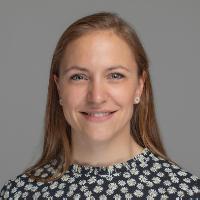 10:05 Henriette Autzen, Associate Professor, Biomolecular Sciences, Department of Biology, University of Copenhagen, focuses on molecular dynamics simulations, protein crystallization and single-particle cryo-electron microscopy, and recently published on characterization of divalent cation interactions with AASTY native nanodiscs in ACS Appl. Polym. Mater.
10:05 Henriette Autzen, Associate Professor, Biomolecular Sciences, Department of Biology, University of Copenhagen, focuses on molecular dynamics simulations, protein crystallization and single-particle cryo-electron microscopy, and recently published on characterization of divalent cation interactions with AASTY native nanodiscs in ACS Appl. Polym. Mater.
 10:25 David Glück, PhD Student, Karl-Franzens-Universität Graz with Sandro Keller, will present Electroneutral polymer nanodiscs enable interference-free probing of membrane proteins in a lipid-bilayer environment, was published in Small. Slides
10:25 David Glück, PhD Student, Karl-Franzens-Universität Graz with Sandro Keller, will present Electroneutral polymer nanodiscs enable interference-free probing of membrane proteins in a lipid-bilayer environment, was published in Small. Slides
Session 3 chaired by Johanna Syrjanen, Cold Spring Harbor Laboratory
 10:50 Melina Daniilidis is a PhD Student in Franz Hagn's Lab of Structural Membrane Biochemistry Bavarian NMR Center, Technical University of Munich, and will present Circularized MSP nanodiscs facilitate high-resolution NMR studies of membrane proteins and recently published on a paper on this topic in J Mol Biol.
10:50 Melina Daniilidis is a PhD Student in Franz Hagn's Lab of Structural Membrane Biochemistry Bavarian NMR Center, Technical University of Munich, and will present Circularized MSP nanodiscs facilitate high-resolution NMR studies of membrane proteins and recently published on a paper on this topic in J Mol Biol.
 11:10 Katia Cosentino, Junior Professor, Molecular Cell Biophysics, Universität Osnabrück, aims to understand the molecular mechanisms of membrane pore formation, and recently published on the interplay between BAX and BAK tunes apoptotic pore growth to control mitochondrial-DNA-mediated inflammation in Mol Cell.
11:10 Katia Cosentino, Junior Professor, Molecular Cell Biophysics, Universität Osnabrück, aims to understand the molecular mechanisms of membrane pore formation, and recently published on the interplay between BAX and BAK tunes apoptotic pore growth to control mitochondrial-DNA-mediated inflammation in Mol Cell.
Session 4 chaired by Debbie Hansen, Arizona State University
 11:35 Wei Mi, Assistant Professor, Department of Pharmacology at Yale University School of Medicine, Yale University uses methods including cryoEM to study membrane proteins and recently published on the regulatory mechanisms of lipopolysaccharide synthesis in Escherichia coli in Nat Comms.
11:35 Wei Mi, Assistant Professor, Department of Pharmacology at Yale University School of Medicine, Yale University uses methods including cryoEM to study membrane proteins and recently published on the regulatory mechanisms of lipopolysaccharide synthesis in Escherichia coli in Nat Comms.
 11:55 Alexander Nevzorov, Professor, Department of Chemistry, North Carolina State University, focuses on structure determination of membrane proteins, and recently published on aligned peptoid-based macrodiscs for structural studies of membrane proteins by oriented-sample NMR in Biophys J.
11:55 Alexander Nevzorov, Professor, Department of Chemistry, North Carolina State University, focuses on structure determination of membrane proteins, and recently published on aligned peptoid-based macrodiscs for structural studies of membrane proteins by oriented-sample NMR in Biophys J.
12:15 pm MDT Closing Discussions
Testimonial: "The SMALP meetings have really been my favorite pandemic Zoom series - I learn something new each meeting, there are lots of interesting questions, and atmosphere is always friendly and welcoming." - attendee on Sep 15, 2022
Let us know if you'd like to present a story related to synthetic polymers or their applications including in structural, molecular or cellular biology, in vitro diagnostics or in vivo applications, or nominate a leader or rising star.
International SMALP Conference on Sept. 15, 2022
Session 1
Chair: Alice Rothnie, Senior Lecturer in Biochemistry, Aston University
 Benedict Dirnberger is a Postdoc with Kathryn Lilley, Department of Biochemistry, University of Cambridge, and recently published Drosophila nicotinic acetylcholine receptor subunits and their native interactions with insecticidal peptide toxins
Benedict Dirnberger is a Postdoc with Kathryn Lilley, Department of Biochemistry, University of Cambridge, and recently published Drosophila nicotinic acetylcholine receptor subunits and their native interactions with insecticidal peptide toxins
 Harris Bernstein, Section Chief: Protein Biogenesis Section, Genetics and Biochemistry Branch, National Institute of Diabetes and Digestive and Kidney Diseases (NIDDK) will give a talk entitled Using SMALPs to obtain insights into the assembly of bacterial outer membrane proteins.
Harris Bernstein, Section Chief: Protein Biogenesis Section, Genetics and Biochemistry Branch, National Institute of Diabetes and Digestive and Kidney Diseases (NIDDK) will give a talk entitled Using SMALPs to obtain insights into the assembly of bacterial outer membrane proteins.
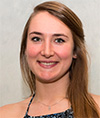 Gestél Kuyler, PhD Student, Department of Chemistry and Polymer Science, Stellenbosch University and Centre for Sports, Exercise and Life Sciences, Coventry University: Novel terpolymers for detergent-free solubilisation of GPCRs.
Gestél Kuyler, PhD Student, Department of Chemistry and Polymer Science, Stellenbosch University and Centre for Sports, Exercise and Life Sciences, Coventry University: Novel terpolymers for detergent-free solubilisation of GPCRs.
Session 2
Chair: Laura Wilt, Postdoc, St. Jude Children's Research Hospital
 Emma Gordon, PhD student with Gary Lorigan at the Department of Chemistry and Biochemistry, Miami University, and recently published Formation of styrene maleic acid lipid nanoparticles (SMALPs) using SMA thin film on a substrate
Emma Gordon, PhD student with Gary Lorigan at the Department of Chemistry and Biochemistry, Miami University, and recently published Formation of styrene maleic acid lipid nanoparticles (SMALPs) using SMA thin film on a substrate
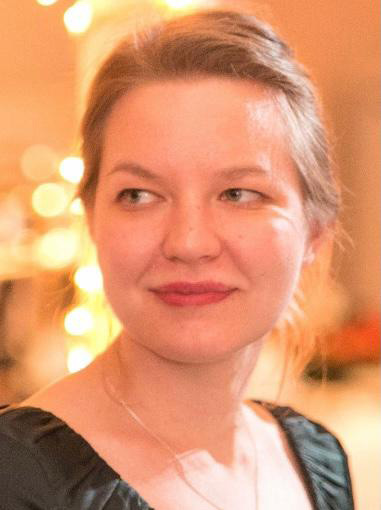 Johanna Syrjanen, Postdoc with Hiro Furukawa at Keck Structural Biology, Cold Spring Harbor Laboratory with will speak on Using nanodiscs as a tool to define the structure and function of large pore channels, and recently published Structure and assembly of calcium homeostasis modulator proteins
Johanna Syrjanen, Postdoc with Hiro Furukawa at Keck Structural Biology, Cold Spring Harbor Laboratory with will speak on Using nanodiscs as a tool to define the structure and function of large pore channels, and recently published Structure and assembly of calcium homeostasis modulator proteins
 Krishnarjuna Bankala, Postdoc with Ayyalusamy Ramamoorthy, University of Michigan, who recently published on direct extraction of membrane proteins using SMA-based and inulin-based polymers including "Detergent-free isolation of CYP450-reductase's FMN-binding domain in E. coli lipid-nanodiscs using a charge-free polymer"
Krishnarjuna Bankala, Postdoc with Ayyalusamy Ramamoorthy, University of Michigan, who recently published on direct extraction of membrane proteins using SMA-based and inulin-based polymers including "Detergent-free isolation of CYP450-reductase's FMN-binding domain in E. coli lipid-nanodiscs using a charge-free polymer"
Session 3
Chair: Joey Sheff - Research Associate, National Research Council Canada
 Youzhong Guo, Assistant Professor of Medicinal Chemistry, Department of Medicinal Chemistry, Institute for Structural Biology, Drug Discovery and Development VCU, School of Pharmacy will give a talk entitled Advances of Native Cell Membrane Nanoparticles System.
Youzhong Guo, Assistant Professor of Medicinal Chemistry, Department of Medicinal Chemistry, Institute for Structural Biology, Drug Discovery and Development VCU, School of Pharmacy will give a talk entitled Advances of Native Cell Membrane Nanoparticles System.
 Michael Marty, Associate Professor Department of Chemistry & Biochemistry, The University of Arizona applies noncovalent or native mass spectrometry to study the structures and biophysics of peptides and proteins in membrane environoments, and will speak about Using mass spectrometry to study interactions of membrane proteins in nanodiscs.
Michael Marty, Associate Professor Department of Chemistry & Biochemistry, The University of Arizona applies noncovalent or native mass spectrometry to study the structures and biophysics of peptides and proteins in membrane environoments, and will speak about Using mass spectrometry to study interactions of membrane proteins in nanodiscs.
 Rajan Lamichhane, Assistant Professor, Department of Biochemistry & Cellular and Molecular Biology, The University of Tennessee at Knoxville focuses on conformational dynamics of biomolecular interactions, and will present Single-molecule view of the human A2A adenosine receptor dynamics in a native-like environment.
Rajan Lamichhane, Assistant Professor, Department of Biochemistry & Cellular and Molecular Biology, The University of Tennessee at Knoxville focuses on conformational dynamics of biomolecular interactions, and will present Single-molecule view of the human A2A adenosine receptor dynamics in a native-like environment.
European SMALP Conference on April 6-8, 2022
Speakers:
Adrian Kopf, Utrecht University: Synthesis and evaluation of a novel library of copolymers: Expanding the toolbox for the study of membrane proteins
Antoinette Killian, Utrecht University, The Netherlands
Bert Klumperman, Stellenbosch University: Non-alternating SMA with narrow molecular weight distribution
David Roper: University of Warwick: SMALP isolation of the S.pneumoniae FtsEX divisome complex with peptidoglycan hydrolase PcsB and actin homologue FtsA, required for cell division.
George Neville - University of Bath: Fluorescent SMA copolymers to facilitate membrane protein studies in lipid nanodiscs
Steven Harborne, Peak Proteins: Preparation of GPCRs in SMALP for Biophysical Characterisation
Isabelle Mouro-Chanteloup, Inserm: Detergent-free isolation of native red blood cell membrane complexes
James Mitchell-White, University of Nottingham: A fluorescent inhibitor for probing substrate binding to ABCG2
Jan Kubicek, Cube-Biotech: Finding the perfect match- utilizing shotgun proteomics to create a global database of membrane protein solubilisation
John Young, University of Oxford: Combining Peptidiscs and Mass Photometry to characterize membrane proteins in aqueous solution
Laura Wilk, Robert Koch Institute: Mimicking the multivalent binding of bacterial protein toxins to their cellular receptors in a native-like membrane environment
Mark Wheatley, Coventry University
Michael Overduin, University of Alberta: SMALP technology and new concepts for membrane targeted drug discovery
Paula Booth, Kings College London: Co-translational membrane protein folding in native lipid environments
Peter Judge, University of Oxford
Rachel Grime, University of Birmingham
Rosa Catania, University of Leeds: Detergent-free reconstitution of membrane proteins into hybrid polymer-lipid vesicles
Stephanie Nestorow, University of Birmingham: Polymer Nanoencapsulation Techniques as a Tool to Investigate Insecticide Targets
Stephen Hall, University of Warwick, UK
Tim Dafforn, University of Birmingham
Xueqing Wang, University of Birmingham: Characterising platelet membrane receptors using SMALPs
A workshop on membrane protein solubilization, purification and downstream characterization using native nanodiscs is included from 9:00-12:30 on April 8.
This conference is being organized by the Biochemical Society with sponsors including Biochemical Society Transactions, Nanotemper, Cube Biotech, Cytiva,Generon , Molecular Dimensions, and Orbiscope. Bursaries are available.
The UK workshop on membrane proteins covering solubilization and biophysical characterization techniques will be held at Aston University from April 4-6, 2022 with talks by:
Alan Goddard, Alice Rothnie, Megan Cox, Vincent Postis: Lipid nanoparticles
Alice Rothnie, Aston University: Lipid nanoparticles (SMALPs)
Andrew Quigley, Diamond Light Source: High throughput membrane protein expression and purification
Bonnie Wallace, Birkbeck: Circular dichroism of membrane proteins
Boyan Bonev, University of Nottingham: NMR of membrane proteins
Colin Grant, Refeyn: Mass Photometry: Measuring Molecules with Light
Corinne Spickett, Aston University: Mass spec - lipidomics
Isabel Moraes, NPL: Membrane protein crystallography
John Simms, Aston University: MD of membrane proteins
Luke Clifton, STFC: Unravelling the Structural Complexity of Protein-Lipid Interactions with Neutron Reflectometry
Marcus Allen, University of Brighton: Ion channel recording in planar lipid bilayers
Megan Cox, Aston University/Meritics Ltd: Nanoparticle analysis
Stephen Muench, University of Leeds: Single particle CryoEM for membrane protein structure
Vincent Postis, University of Leeds: Membrane protein solubilisation: detergents, SMALPs, nanodiscs and amphipols
International SMALP Conference on January 28, 2022
Session 1 Chair: Bert Klumperman, Stellenbosch University
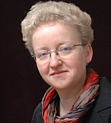 Annette Meister, Institute for Biochemistry and Biotechnology, Martin Luther University Halle-Wittenberg studies membrane protein interactions and nanodiscs and has recently published Solubilization of artificial mitochondrial membranes by amphiphilic copolymers of different charge and Nanoscale Model System for the Human Myelin Sheath.
Annette Meister, Institute for Biochemistry and Biotechnology, Martin Luther University Halle-Wittenberg studies membrane protein interactions and nanodiscs and has recently published Solubilization of artificial mitochondrial membranes by amphiphilic copolymers of different charge and Nanoscale Model System for the Human Myelin Sheath.
 Dmitry Veprintsev, Professor of Molecular and Cellular Pharmacology, Centre of Membrane Proteins and Receptors (COMPARE), University of Nottingham is developing approaches for incorporation of protein and systems dynamics of GPCRs into drug discovery, and recently published Functional solubilization of the β2-adrenoceptor using diisobutylene maleic acid.
Dmitry Veprintsev, Professor of Molecular and Cellular Pharmacology, Centre of Membrane Proteins and Receptors (COMPARE), University of Nottingham is developing approaches for incorporation of protein and systems dynamics of GPCRs into drug discovery, and recently published Functional solubilization of the β2-adrenoceptor using diisobutylene maleic acid.
 Xueqing Wang, PhD student in University of Birmingham, UK, will present "Characterising platelet membrane receptors in their native environment using SMALP" and focuses on the investigation of a wide range of platelet membrane receptor interactions and stoichiometry using SMALP-related assays, and the purification of SMALPs containing platelet collagen receptor GPVI from over-expression systems.
Xueqing Wang, PhD student in University of Birmingham, UK, will present "Characterising platelet membrane receptors in their native environment using SMALP" and focuses on the investigation of a wide range of platelet membrane receptor interactions and stoichiometry using SMALP-related assays, and the purification of SMALPs containing platelet collagen receptor GPVI from over-expression systems.
Session 2 Chair: Brittany Wiseman, University of Alberta
 Bernadette Byrne, Professor of Molecular Membrane Biology, Faculty of Natural Sciences, Department of Life Sciences, Imperial College London studies the structures, lipid interactions and aggregation properties of membrane proteins, and develops tools and amphilies for large- scale production of stable, functional membrane proteins for structural biological characterization.
SLIDES
Bernadette Byrne, Professor of Molecular Membrane Biology, Faculty of Natural Sciences, Department of Life Sciences, Imperial College London studies the structures, lipid interactions and aggregation properties of membrane proteins, and develops tools and amphilies for large- scale production of stable, functional membrane proteins for structural biological characterization.
SLIDES
 Benoît Zuber, Associate Professor for Anatomy and Structural Biology, University of Bern, studies synaptic vesicles, neuronal signaling and exocytic mechanisms using cryo-electron microscopy and cryo-electron tomography, and recently published Cryo-EM structure of the octameric pore of Clostridium perfringens β-toxin.
Benoît Zuber, Associate Professor for Anatomy and Structural Biology, University of Bern, studies synaptic vesicles, neuronal signaling and exocytic mechanisms using cryo-electron microscopy and cryo-electron tomography, and recently published Cryo-EM structure of the octameric pore of Clostridium perfringens β-toxin.
 Thorsten Schmidt, Assistant Professor for Experimental Biophysics Kent State University, is developing DNA-based tools and devices for single-molecule cryo-EM of membrane proteins as well as other applications in biophysics, molecular biology, nano photonics he will speak on DNA-encircled lipid nanodiscs. SLIDES
Thorsten Schmidt, Assistant Professor for Experimental Biophysics Kent State University, is developing DNA-based tools and devices for single-molecule cryo-EM of membrane proteins as well as other applications in biophysics, molecular biology, nano photonics he will speak on DNA-encircled lipid nanodiscs. SLIDES
Session 3 Chair: Stephanie Pitch, UC Santa Cruz
 Peter Tieleman, University of Calgary will speak on Analyzing lipid-protein interactions around GPCRs and focuses on biological membranes and molecular dynamics simulation methods for nanodiscs and membrane systems, analysis of interactions within proteins and lipids, and the development of improved lipid models.
Peter Tieleman, University of Calgary will speak on Analyzing lipid-protein interactions around GPCRs and focuses on biological membranes and molecular dynamics simulation methods for nanodiscs and membrane systems, analysis of interactions within proteins and lipids, and the development of improved lipid models.
 Shijian Zhang, Instructor, Harvard Medical School and Department of Microbiology, Dana-Farber Cancer Institute will present HIV-1 envelope glycoproteins in SMALP are stable and preserve native conformations, and submitted Analysis of glycosylation and disulfide bonding of wild-type SARS-CoV-2 spike glycoprotein.
Shijian Zhang, Instructor, Harvard Medical School and Department of Microbiology, Dana-Farber Cancer Institute will present HIV-1 envelope glycoproteins in SMALP are stable and preserve native conformations, and submitted Analysis of glycosylation and disulfide bonding of wild-type SARS-CoV-2 spike glycoprotein.
 Pramod Kumar, Research Investigator at Cold Spring Harbor Laboratory and Post Doc Research Associate, University of Illinois at Urbana-Champaign, is using cryo-EM and SMALPs to better understand ion channel structure & dynamics; he recently published Structure and function at the lipid-protein interface of a pentameric ligand-gated ion channel.
Pramod Kumar, Research Investigator at Cold Spring Harbor Laboratory and Post Doc Research Associate, University of Illinois at Urbana-Champaign, is using cryo-EM and SMALPs to better understand ion channel structure & dynamics; he recently published Structure and function at the lipid-protein interface of a pentameric ligand-gated ion channel.
International SMALP conference on Oct 1, 2021
Session 1 Chair: Bert Klumperman, Stellenbosch University
 Paul Whitley, Senior Lecturer, Department of Biology & Biochemistry, University of Bath studies endosomal sorting machineries including the ESCRT complex with phosphoinositides, collaborates with Karen Edler on SMALP structures, and will present: Sharing some of our ‘interesting’ experiences so far in 2 short stories. SLIDES
Paul Whitley, Senior Lecturer, Department of Biology & Biochemistry, University of Bath studies endosomal sorting machineries including the ESCRT complex with phosphoinositides, collaborates with Karen Edler on SMALP structures, and will present: Sharing some of our ‘interesting’ experiences so far in 2 short stories. SLIDES
 Reidar Lund, Associate Professor at University of Oslo, focusses on soft matter including polymers by methods such as X-ray and neutron scattering and recently published Understanding the Structural Pathways for Lipid Nanodisc Formation: How Styrene Maleic Acid Copolymers Induce Membrane Fracture and Disc Formation. SLIDES
Reidar Lund, Associate Professor at University of Oslo, focusses on soft matter including polymers by methods such as X-ray and neutron scattering and recently published Understanding the Structural Pathways for Lipid Nanodisc Formation: How Styrene Maleic Acid Copolymers Induce Membrane Fracture and Disc Formation. SLIDES
 Alice Rothnie, Senior Lecturer, Life & Health Sciences, Biosciences, Aston University, focuses on ABC proteins, secondary active transporters, ion channels and GPCRs, and comparison of performance of synthetic copolymers for membrane protein solubilization and native nanodisc behaviour.
Alice Rothnie, Senior Lecturer, Life & Health Sciences, Biosciences, Aston University, focuses on ABC proteins, secondary active transporters, ion channels and GPCRs, and comparison of performance of synthetic copolymers for membrane protein solubilization and native nanodisc behaviour.
Session 2 Chair: Antoinette Killian, Utrecht University
 Joshua Verstappen, Product & Application Engineer, Orbiscope together with Jan Kubicek, Co-Founder & Managing Director, Cube Biotech GmBH on new SMALP names and announcement of the winner of the SMALPetition.
Joshua Verstappen, Product & Application Engineer, Orbiscope together with Jan Kubicek, Co-Founder & Managing Director, Cube Biotech GmBH on new SMALP names and announcement of the winner of the SMALPetition.
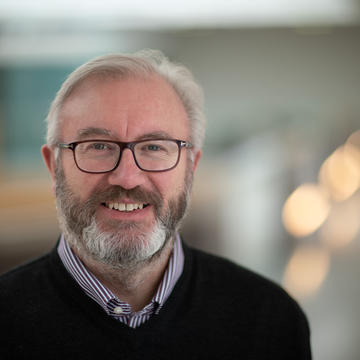 Mark S.P. Sansom, David Phillips Professor of Molecular Biophysics, Dept. of Biochemistry, University of Oxford, studies the relationship between structure and function in membrane proteins using structural bioinformatics, molecular modelling, molecular dynamics simulations, and will present: MD Simulations to Aid Analysis of Protein/Lipid Interactions.
Mark S.P. Sansom, David Phillips Professor of Molecular Biophysics, Dept. of Biochemistry, University of Oxford, studies the relationship between structure and function in membrane proteins using structural bioinformatics, molecular modelling, molecular dynamics simulations, and will present: MD Simulations to Aid Analysis of Protein/Lipid Interactions.
 Bob Gennis, Professor Emeritus of Biochemistry at the University of Illinois studies membrane-bound metalloproteins that catalyze electron transfer reactions coupled to the generation of both a voltage and ion gradient across the membrane bilayer. and will present the High resolution CryoEM structures of the E. coli respiratory O2 reductase, cytochrome bo3, in SMALPS and in MSP nanodiscs. SLIDES
Bob Gennis, Professor Emeritus of Biochemistry at the University of Illinois studies membrane-bound metalloproteins that catalyze electron transfer reactions coupled to the generation of both a voltage and ion gradient across the membrane bilayer. and will present the High resolution CryoEM structures of the E. coli respiratory O2 reductase, cytochrome bo3, in SMALPS and in MSP nanodiscs. SLIDES
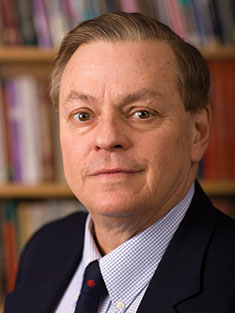 Stephen Sligar, Swanlund Endowed Chair and Director, School of Molecular and Cellular Biology, University of Illinois at Urbana-Champaign on Apo-AI based scaffold proteins. He invented Nanodiscs and studies the structure and mechanistic function of membrane proteins, including Ras proteins and metalloenzymes involved in human drug metabolism and steroid hormone biosynthesis.
Stephen Sligar, Swanlund Endowed Chair and Director, School of Molecular and Cellular Biology, University of Illinois at Urbana-Champaign on Apo-AI based scaffold proteins. He invented Nanodiscs and studies the structure and mechanistic function of membrane proteins, including Ras proteins and metalloenzymes involved in human drug metabolism and steroid hormone biosynthesis.
Session 3 Chair: Oliver Ernst, University of Toronto
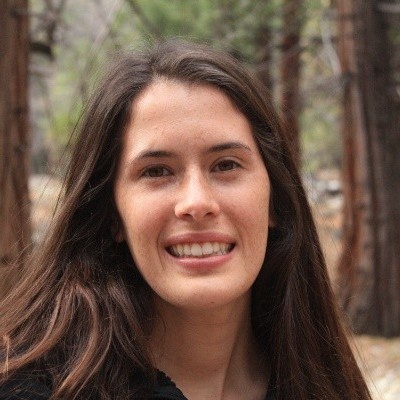 Stephanie Pitch, PhD candidate in biophysical chemistry at the University of California, Santa Cruz is under the supervision of David Kliger, and will present on Functional integrity of membrane protein rhodopsin solubilized by amphipathic polymers. SLIDES
Stephanie Pitch, PhD candidate in biophysical chemistry at the University of California, Santa Cruz is under the supervision of David Kliger, and will present on Functional integrity of membrane protein rhodopsin solubilized by amphipathic polymers. SLIDES
 Youzhong Guo, Assistant Professor, Institute for Structural Biology, Drug Discovery and Development, School of Pharmacy, Virginia Commonwealth University, focuses on membrane protein structural biolog, drug discovery and the design of novel polymers for production and analysis of native nanodiscs, and will present: Cryo-EM Structure of Mechanosensitive Channel YnaI using SMA2000: Challenges and Opportunities.
Youzhong Guo, Assistant Professor, Institute for Structural Biology, Drug Discovery and Development, School of Pharmacy, Virginia Commonwealth University, focuses on membrane protein structural biolog, drug discovery and the design of novel polymers for production and analysis of native nanodiscs, and will present: Cryo-EM Structure of Mechanosensitive Channel YnaI using SMA2000: Challenges and Opportunities.
 Thi Kim Hoang Trin, postdoc at Virginia Commonwealth University, previously PhD student at the Institution of Materials Science in Mulhouse and MSc from Pusan National University in Polymer Science and Engineering, and will present:pH tunable membrane-active polymers, NCMNP2a-x, for membrane protein structural biology.
Thi Kim Hoang Trin, postdoc at Virginia Commonwealth University, previously PhD student at the Institution of Materials Science in Mulhouse and MSc from Pusan National University in Polymer Science and Engineering, and will present:pH tunable membrane-active polymers, NCMNP2a-x, for membrane protein structural biology.
International SMALP Conference on May 28, 2021
Session 1 Chair: Marta Barniol-Xicota, KU Leuven.
Yuhang Chen, State Key Laboratory of Molecular Developmental Biology, Institute of Genetics and Developmental Biology, Chinese Academy of Sciences will present on Structure and activity of SLAC1 channels for stomatal signaling in leaves.
Sandro Keller, Professor, Institute of Molecular Biosciences, University of Graz, will present A Bioinspired Glycopolymer for Capturing Membrane Proteins in Native-Like Lipid-Bilayer Nanodiscs.
Kin Hoi works with Carol Robinson , University of Oxford, and will present on Detergent-free Lipodisq Nanoparticles Facilitate High-Resolution Mass Spectrometry of Folded Integral Membrane Proteins.
Session 2 Chair: Alice Rothnie, Aston University
Natalia Voskoboynikova, researcher with Heinz-Jürgen Steinhoff, Department of Physics, University of Osnabrueck on SMA- and DIBMA-encircled lipid nanoparticles of variable size as tools for the structural and functional study of membrane proteins.
Sophie Harvey is a Senior Research Associate with Vicki Wysocki at Ohio State University and will present on Characterizing lipoprotein nanodiscs using native mass spectrometry and surface-induced dissociation”.
Cameron Workman, Chemistry Department, U Tennessee Knoxville, works with Barry Bruce and will present Protein Extraction Efficiency and Selectivity of Esterified Styrene-Maleic Acid Copolymers in Thylakoid Membranes.
Session 3 Chair: Brittany Wiseman, MacEwan University and SMALP Network Intern
Shuo Qian at the Oak Ridge National Laboratory will present on the Structure of Diisobutylene Maleic Acid Copolymer (DIBMA) and Its Lipid Particle as a “Stealth” Membrane-Mimetic for Membrane Protein Research.
Ayyalusamy Ramamoorthy, Professor of Chemistry and Biophysics, University of Michigan on Nanodiscs for structure and dynamics studies on membrane-bound REDOX protein-protein complexes.
Mahmoud Nasr, Harvard Medical School, who recently published Cryo-EM structure of an activated GPCR-G protein complex in lipid nanodiscs.
SMALP Conference on February 26, 2021
Session 1 Chair: Sandro Keller, University of Graz
Jan Kubicek, Business Development, Laboratory Management, Quality Control at Cube Biotech.
Adrian Kopf, Utrecht University, who is analyzing a variety of different polymers that form nanodiscs as part of his PhD thesis.
Vanessa Flegler, Universität Würzburg: "The mechanosensitive channel YnaI has a gating mechanism based on flexible pore helices"
Session 2 Chair: Youzhong Guo, Virginia Commonwealth University
Patrick A. de Jonge, Amsterdam UMC, whose studies include "Development of SMALPs as a tool for studies of phage-host interaction"
Bernadette Byrne, Imperial College London; her studies include "Modulation of PTH1R signaling by an ECD binding antibody results in inhibition of β-arrestin 2 coupling"
Paula Booth, King's College London will speak on "Co-translational folding of membrane proteins"; her lab focusses on nanodiscs and folding of membrane proteins including GPCRs, transporters and ribosome nascent chains complexes
Session 3 Chair: Sundaresan Rajesh, GSK
Tim Dafforn, University of Birmingham, on SMALPs, recent papers include "Nano-encapsulated Escherichia coli Divisome Anchor ZipA, and in Complex with FtsZ"
James Mitchell-White who works with Ian D. Kerr at the University of Nottingham, who recently published "Application of fluorescence correlation spectroscopy to study substrate binding in styrene maleic acid lipid copolymer encapsulated ABCG2"
Jose Ortega Roldan, University of Kent on "Elucidating membrane interactions of proteins and small molecules combining solution NMR and SMALPs"
Session 4 Chair: Chanelle Brown, Virginia Tech
Greg Dodge, a postdoc with Barbara Imperiali, MIT, on "Utilizing SMALPs for biochemical and structural studies of glycoconjugate biosynthesis in human pathogens"
Sukriti Gakhar, Associate Scientist at Ascendis Pharma, previously at UC Davis and Genentech, on "Immobilization of membrane proteins using SMALPs in sol-gel based silica gel monoliths".
Conference Speakers on Sept 18, 2020:
Session 1: Solubilizing novel targets, Chair: Tim Dafforn
 Alexandra Desrames, Research Engineer in the Department of Integrated Red Cell Biology, Institut National de la Transfusion Sanguine, Paris recently published Detergent-free isolation of native red blood cell membrane complexes. SLIDES
Alexandra Desrames, Research Engineer in the Department of Integrated Red Cell Biology, Institut National de la Transfusion Sanguine, Paris recently published Detergent-free isolation of native red blood cell membrane complexes. SLIDES
 Alice Rothnie, Aston University focuses on ABC proteins, secondary active transporters, ion channels and GPCRs and recently published CD81 extracted in SMALP nanodiscs comprises two distinct protein populations within a lipid environment enriched with negatively charged headgroups. SLIDES
Alice Rothnie, Aston University focuses on ABC proteins, secondary active transporters, ion channels and GPCRs and recently published CD81 extracted in SMALP nanodiscs comprises two distinct protein populations within a lipid environment enriched with negatively charged headgroups. SLIDES
Session 2: Nanodisc tools, Chair: Alice Rothnie
 Manuela Zoonens, Centre National de la Recherche Scientifique, Paris develops tools for membrane protein studies and recently published Solubilization and stabilization of membrane proteins by cycloalkane-modified amphiphilic polymers. SLIDES
Manuela Zoonens, Centre National de la Recherche Scientifique, Paris develops tools for membrane protein studies and recently published Solubilization and stabilization of membrane proteins by cycloalkane-modified amphiphilic polymers. SLIDES
 Stephen Muench, School of Biomedical Sciences, University of Leeds, Styrene maleic-acid lipid particles (SMALPs) into detergent or amphipols: An exchange protocol for membrane protein characterisation.
Stephen Muench, School of Biomedical Sciences, University of Leeds, Styrene maleic-acid lipid particles (SMALPs) into detergent or amphipols: An exchange protocol for membrane protein characterisation.
Session 3: Polymer design, Chair: Bert Klumperman
 Hongjun Liang, Cell Physiology and Molecular Biophysics at Texas Tech University Health Sciences Center, focuses on membrane protein functions in synthetic proteomembranes and recently published Extraction and reconstitution of membrane proteins into lipid nanodiscs encased by zwitterionic styrene-maleic amide copolymers. SLIDES
Hongjun Liang, Cell Physiology and Molecular Biophysics at Texas Tech University Health Sciences Center, focuses on membrane protein functions in synthetic proteomembranes and recently published Extraction and reconstitution of membrane proteins into lipid nanodiscs encased by zwitterionic styrene-maleic amide copolymers. SLIDES
 Chanelle Brown, Doctoral Candidate with Richard Turner and Rich Gandour, Department of Chemistry, Virginia Polytechnic Institute and State University: Homogeneous nanodiscs of native membranes formed by stilbene–maleic-acid copolymers. SLIDES
Chanelle Brown, Doctoral Candidate with Richard Turner and Rich Gandour, Department of Chemistry, Virginia Polytechnic Institute and State University: Homogeneous nanodiscs of native membranes formed by stilbene–maleic-acid copolymers. SLIDES
Session 4: Biophysical methods, Chair: Michael Overduin
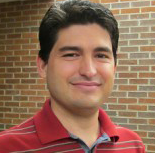 Francisco Barrera, Associate Professor University of Tennessee, investigates the interplay between proteins and lipids using biophysical methods and will present SMALPs allow single molecule fluorescence determination of lipid-promoted activation of the EphA2 receptor.
Francisco Barrera, Associate Professor University of Tennessee, investigates the interplay between proteins and lipids using biophysical methods and will present SMALPs allow single molecule fluorescence determination of lipid-promoted activation of the EphA2 receptor.
SMALP Conference speakers on June 19, 2020
Tim Dafforn, University of Birmingham:Insights into DIBMA based disc formation
Stefan Scheidelaar, Polyscience:Taking SMA one step further
Bert Klumperman, University of Stellenbosch: Iterative RAFT-mediated copolymerization of styrene and maleic anhydride: towards sequence- and length-controlled copolymers and their applications for solubilizing lipid membranes
Sandro Keller and Anne Grethen, Technische Universität Kaiserslautern: New Electroneutral Polymers for Membrane Proteins
Igor Tascon, BIOFISIKA Institute: Structural basis of proton-coupled potassium transport in the KUP family
Mark Wheatley, Coventry University: Fluorescent approaches to studying GPCR function in SMALPs
Adrian Kopf, Utrecht University: Sizing up amphipathic copolymers for membrane solubilization
Gary Lorigan, Miami University on analysis of membrane proteins by RAFT synthesized SMA
Youzhong Guo,Virginia Commonwealth University: cryo-EM structure of a human connexin channel bound to lipids at 3.0 Angstrom
SMALP Conference speakers on March 20, 2020
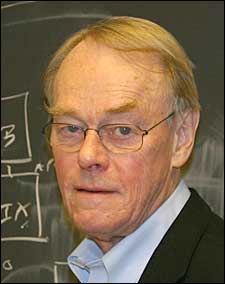 Wayne Hendrickson, Professor, Columbia University, developed multi-wavelength anomalous dispersion as a tool for solving the ‘phase problem’, which revolutionized protein X-ray crystallography, and uses cryo-electron microscopy to elucidate the structural basis of membrane proteins including the ryanodine receptor.
Wayne Hendrickson, Professor, Columbia University, developed multi-wavelength anomalous dispersion as a tool for solving the ‘phase problem’, which revolutionized protein X-ray crystallography, and uses cryo-electron microscopy to elucidate the structural basis of membrane proteins including the ryanodine receptor.
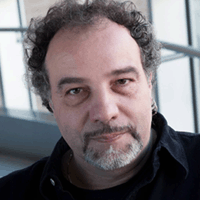 Thomas Walz, Rockefeller University, applies cryo-electron microscopy to resolve macromolecular complexes and membrane proteins involved in vesicular transport, cell adhesion, olfaction and insulin signaling, and will present Cryo-EM studies of Membrane Proteins in Peptidiscs & Nanodiscs. (Cancelled on March 19 due to pressing COVID-19 related duties). PDF slides.
Thomas Walz, Rockefeller University, applies cryo-electron microscopy to resolve macromolecular complexes and membrane proteins involved in vesicular transport, cell adhesion, olfaction and insulin signaling, and will present Cryo-EM studies of Membrane Proteins in Peptidiscs & Nanodiscs. (Cancelled on March 19 due to pressing COVID-19 related duties). PDF slides.
 Youzhong Guo, Professor, Department of Medicinal Chemistry, Virginia Commonwealth University, is focussed on the structural biology will give a talk on SMA-based Membrane Active Polymers for Membrane Protein Structural Biology. PDF slides.
Youzhong Guo, Professor, Department of Medicinal Chemistry, Virginia Commonwealth University, is focussed on the structural biology will give a talk on SMA-based Membrane Active Polymers for Membrane Protein Structural Biology. PDF slides.
 Jie Yu will speak on the Mechanism of gating and partial agonist action in the glycine receptor. As a postdoc with Eric Gouaux at Oregon Health & Science University, she is elucidating structures of neurotransmitter receptors and the molecular basis for signal transduction at synapses in the central nervous system. PDF slides.
Jie Yu will speak on the Mechanism of gating and partial agonist action in the glycine receptor. As a postdoc with Eric Gouaux at Oregon Health & Science University, she is elucidating structures of neurotransmitter receptors and the molecular basis for signal transduction at synapses in the central nervous system. PDF slides.
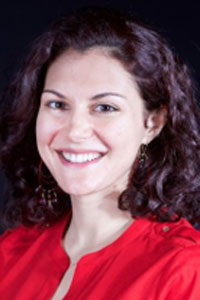 Giulia Weissenberger
Giulia Weissenberger
Applications Engineer
CryoSol-World
VitroJet: Bridging the Gap in Sample Prep
PDF Slides
 Jan Kubicek
Jan Kubicek
Managing Director
Cube Biotech GmbH
Recent DIBMA developments and applications
PDF Slides
 Sebastian Fiedler, Application Scientist at Fluidic Analytics, will speak on Monitoring of SMALP-nanodisc formation by microfluidic diffusional sizing. He was previously Senior Scientist, Cancer Research UK-MedImmune Alliance Laboratory, Postdoc, University of Toronto and was awarded his PhD from Technische Universität Kaiserslautern. PDF slides.
Sebastian Fiedler, Application Scientist at Fluidic Analytics, will speak on Monitoring of SMALP-nanodisc formation by microfluidic diffusional sizing. He was previously Senior Scientist, Cancer Research UK-MedImmune Alliance Laboratory, Postdoc, University of Toronto and was awarded his PhD from Technische Universität Kaiserslautern. PDF slides.
 Tim Dafforn, Professor of Biotechnology, Founder of Linear Diagnostics and Dioptica Scientific, director of knowledge transfer for the college of Life and Environmental Sciences at the University of Birmingham, will present SMALPs: past glorys and future opportunities. Talk was given by Naomi Pollock. PDF slides.
Tim Dafforn, Professor of Biotechnology, Founder of Linear Diagnostics and Dioptica Scientific, director of knowledge transfer for the college of Life and Environmental Sciences at the University of Birmingham, will present SMALPs: past glorys and future opportunities. Talk was given by Naomi Pollock. PDF slides.
 Steven Harborne, Membrane protein specialist at Peak Protein, which aims to supply high-quality protein reagents for many purposes, often to be used in biophysical assays to assist drug-discovery. Title: Comparisons between SMALP’ed and detergent solubilised GPCRs. PDF slides.
Steven Harborne, Membrane protein specialist at Peak Protein, which aims to supply high-quality protein reagents for many purposes, often to be used in biophysical assays to assist drug-discovery. Title: Comparisons between SMALP’ed and detergent solubilised GPCRs. PDF slides.
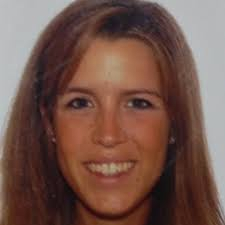 Marta Barniol-Xicota, Marie Curie Postdoctoral Fellow, Cellular and Molecular Medicine, KU Leuven has been invited to present on Comparative study of xMALP composition in eukaryotic and prokaryotic systems. Do xMALPs resemble the native membrane? PDF slides. Preprint.
Marta Barniol-Xicota, Marie Curie Postdoctoral Fellow, Cellular and Molecular Medicine, KU Leuven has been invited to present on Comparative study of xMALP composition in eukaryotic and prokaryotic systems. Do xMALPs resemble the native membrane? PDF slides. Preprint.
 Vlado Gelev holds a PhD in Chemistry from UT Austin, postdoc'd with Gerhard Wagner at Harvard Medical School and founder of FB Reagents, which provides isotope labeled probes and deuterated phospholipids and detergents for membrane protein studies.
Vlado Gelev holds a PhD in Chemistry from UT Austin, postdoc'd with Gerhard Wagner at Harvard Medical School and founder of FB Reagents, which provides isotope labeled probes and deuterated phospholipids and detergents for membrane protein studies.
 Kacee H. Sims, Ph.D.
Kacee H. Sims, Ph.D.
Marketing Technical Specialist
Avanti Polar Lipids, Inc.
 Verna Frasca
Verna Frasca
Field Applications Manager
Malvern Panalytical
Biophysical Characterization of SMALPS
PDF Slides
 Edward E. Pryor, Ph.D.
Edward E. Pryor, Ph.D.
Director of Business Development – Proteomics
Senior Applications and Product Specialist
Anatrace / Molecular Dimensions
 Ann McDermott, Professor, Columbia University, studies the structure, function, and conformational dynamics of membrane proteins in native-like environments by methods including NMR.
Ann McDermott, Professor, Columbia University, studies the structure, function, and conformational dynamics of membrane proteins in native-like environments by methods including NMR.
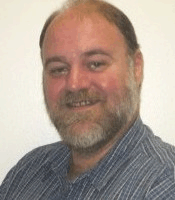 Paul Blount, Professor, UT Southwestern Medical Center, investigates the use of mechanosensors as potential drug targets, as well as developing them into “triggered nanovalves” that could be used in drug-release devices. He will present Advantages of SMALPs for reconstituting channels for patch-clamp analysis and nanodevices
Paul Blount, Professor, UT Southwestern Medical Center, investigates the use of mechanosensors as potential drug targets, as well as developing them into “triggered nanovalves” that could be used in drug-release devices. He will present Advantages of SMALPs for reconstituting channels for patch-clamp analysis and nanodevices
 Nathan Brady,Department of Biochemistry & Cellular and Molecular Biology, University of Tennessee at Knoxville, will present Insights into the formation and future applications of PSI-SMALP. PDF slides.
Nathan Brady,Department of Biochemistry & Cellular and Molecular Biology, University of Tennessee at Knoxville, will present Insights into the formation and future applications of PSI-SMALP. PDF slides.
 Michael Overduin, Professor, Department of Biochemistry at the University of Alberta will present Novel polymers for memtein solubilization and analysis , and has been developing a set of SMA derivatives and related polymers developed for native membrane protein oligomers and lipid complexes. PDF slides.
Michael Overduin, Professor, Department of Biochemistry at the University of Alberta will present Novel polymers for memtein solubilization and analysis , and has been developing a set of SMA derivatives and related polymers developed for native membrane protein oligomers and lipid complexes. PDF slides.
SMALP Conference in Utrecht
A SMALP meeting held on Friday April 26, 2019 gathered 125 participants to form the world's largest native nanodisc. With a diameter of over 7 meters, the big SMALP included people dressed in red-orange, blue-green and grey-black to represent protein, lipid and polymer components, respectively.
